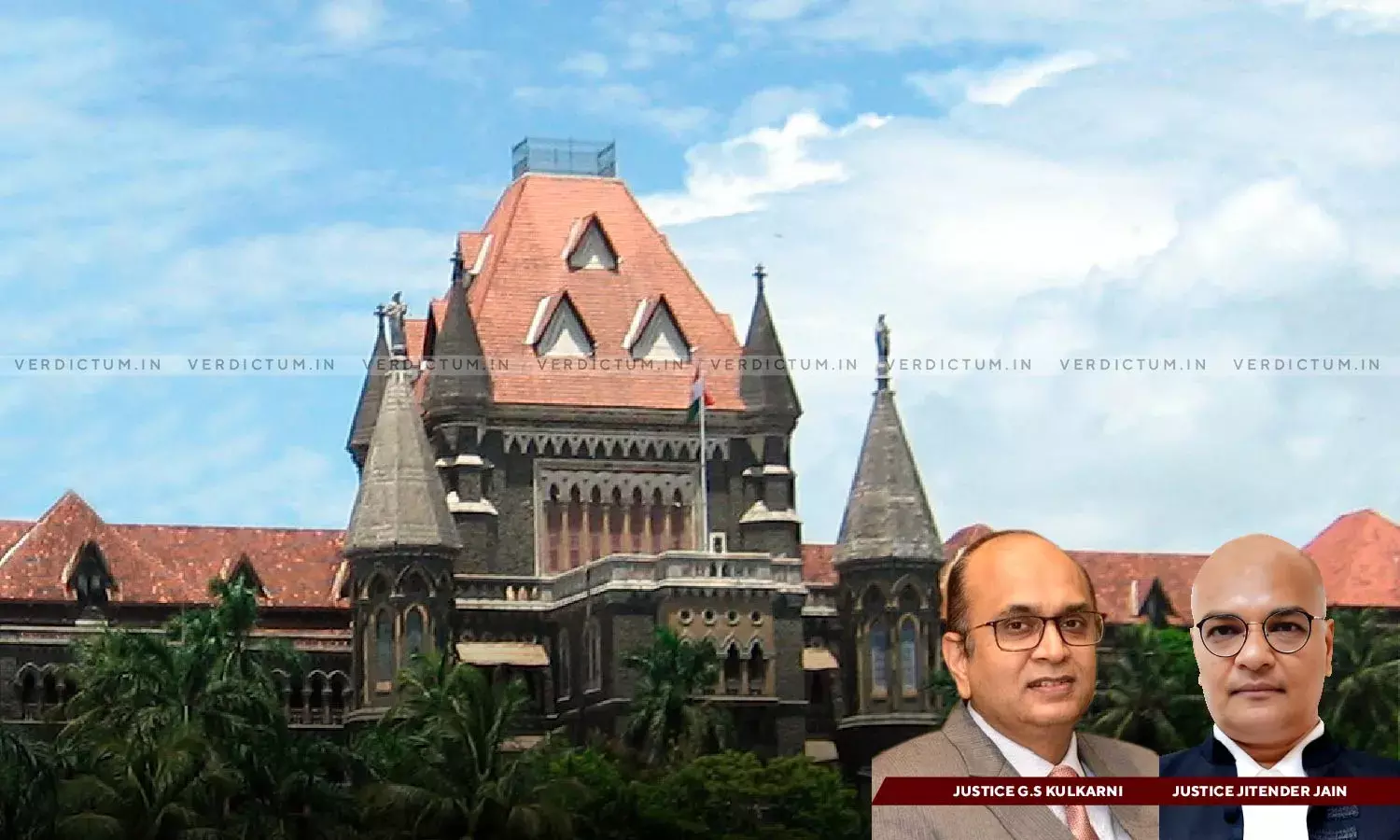Representative Of Manufacturing Unit In India Can Affix Standard Mark On Imported Goods Already Having BIS Registration For Customs Clearance: Bombay HC

The Bombay High Court noted that where the standard mark has not been affixed on the imported goods already having unique registration number from the BIS, such mark may be affixed by representative of the manufacturing unit having liaison office or branch office located in India, for clearance of goods from Customs.
The Division Bench comprising of Justice G.S Kulkarni and Justice Jitendra Jain observed "It is thus clear from the reading of paragraph 3 of the aforesaid notice that where the standard mark has not been affixed on the imported goods already having unique registration number from the BIS, such mark may be affixed by representative of the manufacturing unit having liaison office or branch office located in India, for clearance of goods from Customs.”.
Senior Advocate Arshad Hidayatullah appeared for the Petitioner, whereas Advocate Subir Kumar appeared for the Respondent.
The brief facts of the case were that the petitioner, a wholly owned subsidiary of Bajaj Auto Ltd., is inter alia engaged in manufacture and sale of electric Scooters, had sought for a relief regarding clearance of imports as undertaken by the petitioner, of goods described as “Lithium Ion Cell”. Such imports were subject matter of various bills of entries, out of which, the consignments under seven bills of entries were cleared for home consumption. Such clearance was granted after the Customs Officer undertook assessment of these seven bills of entries on physical examination of each and every consignment. However, in respect of two companion bills of entries, the Customs Authorities / respondents detained the goods.
The principal challenge to the order(s)-in-original was to the effect without the petitioner being heard, the order-in-original was passed ordering confiscation of the goods under the bills of entries in question. Such order-in-original was issued by the department on the premise that the goods as imported by the petitioner were not complying with the requirements prescribed by the Bureau of Indian Standards, in as much as it was observed that BIS markings / stickers were not found on the imported goods, and that such marking/labels were fixed on the cartoons / packages.
After considering the submission, the Bench noted that the product is manufactured by a foreign manufacturer known as “Panasonic”, which has obtained a registration licence / under the 2018 Regulation.
Also, that Panasonic has affixed the BIS mark on the package of the product, added the Bench.
The Bench explained that the requirement of labelling and marking under paragraph 6 under Schedule II of the Regulation is clear to the effect that each “product” or the “package”, “as the case may be”, shall be marked with the Standard Mark, and thus, it is clearly permissible to have a mark on the package, which requirement is met by the petitioner, in respect of the consignment in question of the two bills of entries.
“The respondents despite the clear provisions of paragraph 6 of the Schedule II Scheme I of the 2018 Regulation (supra), in our opinion, have chosen not to apply the requirement as it stands, however, they are applying Public Notice No.136 of 2018 dated 8 October 2018 issued by the Office of the Commissioner of Customs, NS-III, Mumbai Customs Zone-II”, added the Bench.
The Bench also found substance in the petitioner’s contention that there is no justification whatsoever as to how a different yardstick could be applied by the respondents to the goods in question, when similar goods under seven bills of entries were released and only two bills of entries were subjected to an illegal detention by the respondents.
Accordingly, the High Court allowed the petition.
Cause Title: Chetak Technology Ltd. v. Union of India and Ors. [Neutral Citation: 2023:BHC-AS:34968-DB]
Click here to read/ download the Judgment

